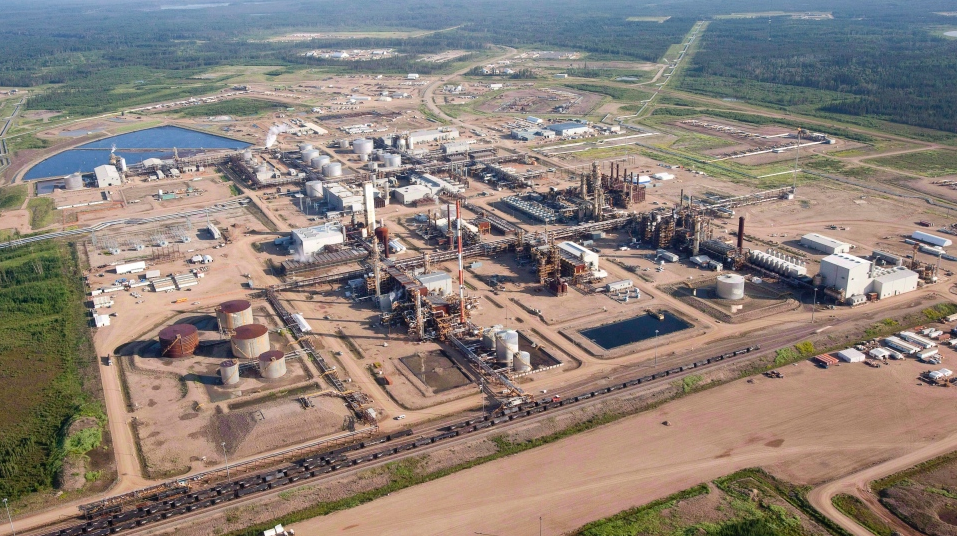Support strong Canadian climate journalism for 2025
A study suggests Canada's attempts to set a price on carbon are being undercut by subsidies to the fossil-fuel industry.
A coalition of four environmental groups have summed up tax exemptions, investment credits and royalty breaks used by the fossil- fuel industry and compared the total against emissions data from Environment Canada.
The "carbon subsidy" averages out to the equivalent of $19 per tonne of carbon dioxide.
That almost equals the price on carbon Alberta plans to implement next year, doubles the proposed initial federal price and negates two-thirds of British Columbia's $30 carbon levy.
"These subsidies undermine the notion of a price on carbon, which is intended to give incentives to reduce our fossil-fuel use and move toward cleaner use of energy," said Dale Marshall of Environmental Defence, one of the groups involved in the study.
Still, some warn ending those benefits wouldn't reduce emissions much and would chase investment out of the country.
The report calculates the total cost of fossil-fuel subsidies at about $3.3 billion a year. Nearly $1.2 billion comes from favourable federal tax treatment of oil and gas exploration and development projects.
There's no reason for that, Marshall said. Research suggests many of current oil and gas reserves already mapped will have to be left in the ground if climate change is to be kept under two degrees of warming.
"We know from the science that the vast majority of the reserves that are already there can't be exploited."
The second-biggest subsidy comes from Alberta, which provides $1.1 billion through forgone revenues from royalty reductions. The rest comes from a mix of federal and provincial tax credits and other subsidies.
Marshall said governments should be working to gradually scale down the industry, not encourage its growth.
"Fighting climate change means managed decline in fossil-fuel sectors. There's no other way to reduce emissions."
Speaking in Marrakech at a UN climate-change conference, federal Environment Minister Catherine McKenna said Ottawa will end subsidies by 2024.
"We will do it in an intelligent way," she told reporters. "We obviously have to work with the provinces. We've already had discussions and I've had discussions with the finance minister."
But tax breaks for exploration and development are how governments share risk at the iffiest end of the industry, said Jon Stringham, economics manager for the Canadian Association of Petroleum Producers. Removing them would simply divert investment to other countries — many of which, such as a Donald-Trump-led United States, are less than keen to reduce carbon emissions.
"Any (carbon regulation) on the American side is going to hit the dustbin," said Stringham. "We're not going to see onerous regulations.
"You're going to see investment flow out of Canada into the U.S."
Finding new reserves allows industry to focus on those that are least carbon intensive, Stringham added.
Mark Jaccard, an energy economics at Simon Fraser University, points out the federal tax benefit is designed to encourage the overall mining and resource development sector. Economists dispute the actual impact on greenhouse gas emissions, he said.
Some subsidy programs are for research, he said.
"Much of the R&D subsidies now are to find ways to produce oilsands with less emissions," he said in an email. "So (should we) eliminate that?"
It's more effective to keep raising the cost of carbon, said Jaccard.
"I see (subsidies) as a bit of a diversion."







Comments
So the logic is that Canadian taxpayers should heavily subsidize offshore multinational corporations to destroy our air, water and wilderness to get at the dirtiest, lowest quality tarsand dilbit on the planet, because if we don't, they will just go elsewhere? So we should continue to subsidize these operations for 8 more years, with no mention of the Trudeau election promise To End These Subsidies? If the subsidies were ended immediately, along with permits to build or expand more pipelines and infrastructure (along with Site C, since that is it's purpose) the money could be plowed into programs for small-scale renewables that allow millions of people to get off grid and start to make positive change. Those losing jobs in the industry could transition into these jobs, if they are qualified. I empathize with those losing jobs, but we cannot destroy the planet further to prop up their jobs in a dying industry. If these companies moved to the US, they are still subject to environmental laws (with citizens mobilizing to fight for these protections), the oil is superior and requires less refining, the massive pipeline infrastructure as well as the tankers and bomb trains would no longer be endangering our wildlife, waterways, or citizens. I would call that a huge win. If the Koch brothers, Kinder Morgan, and all their ilk left (please take the Irving clan with you), the time governments now spend meeting with lobbyists and corporate bigwigs could be redirected into working for the good of the country.